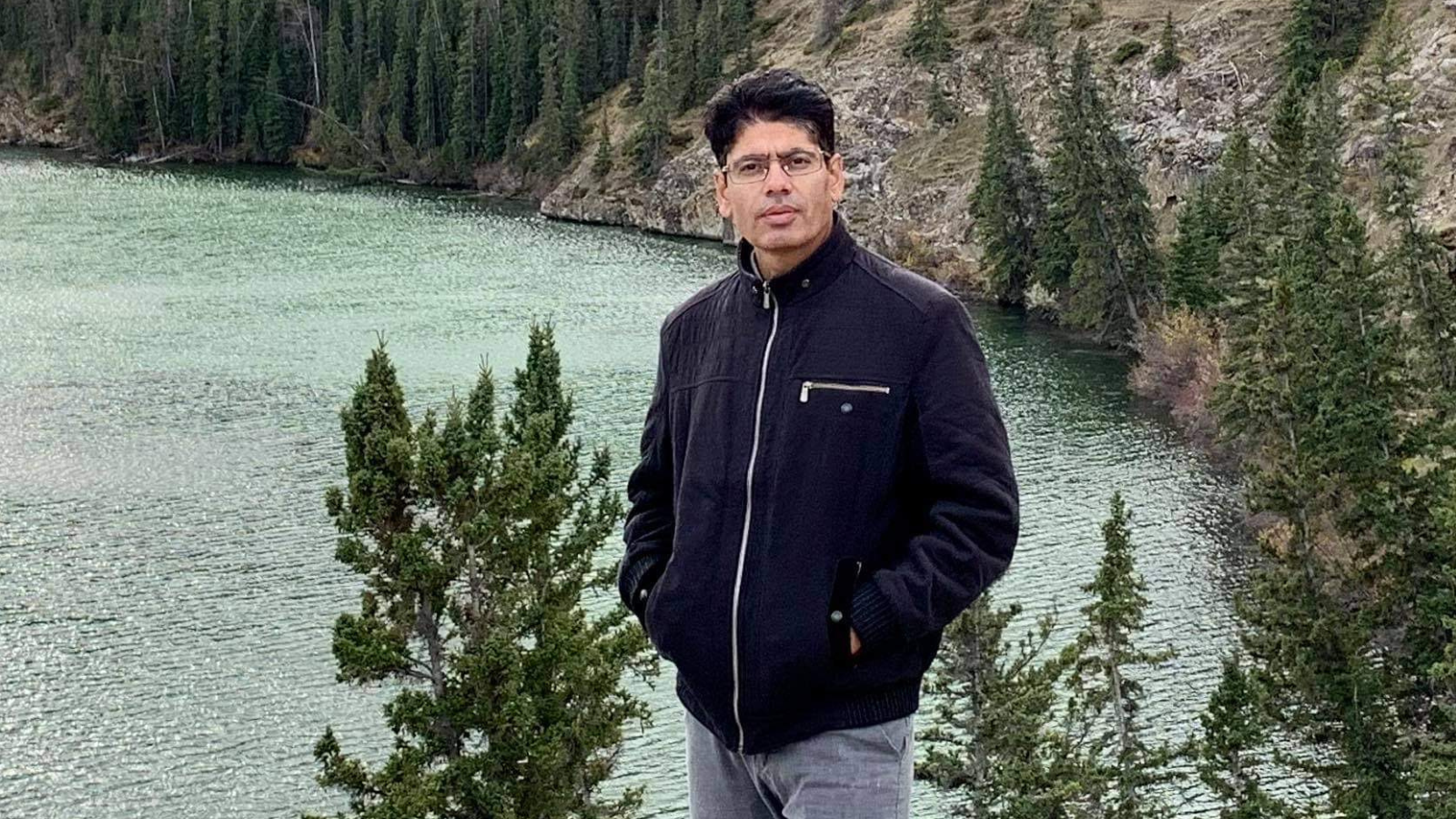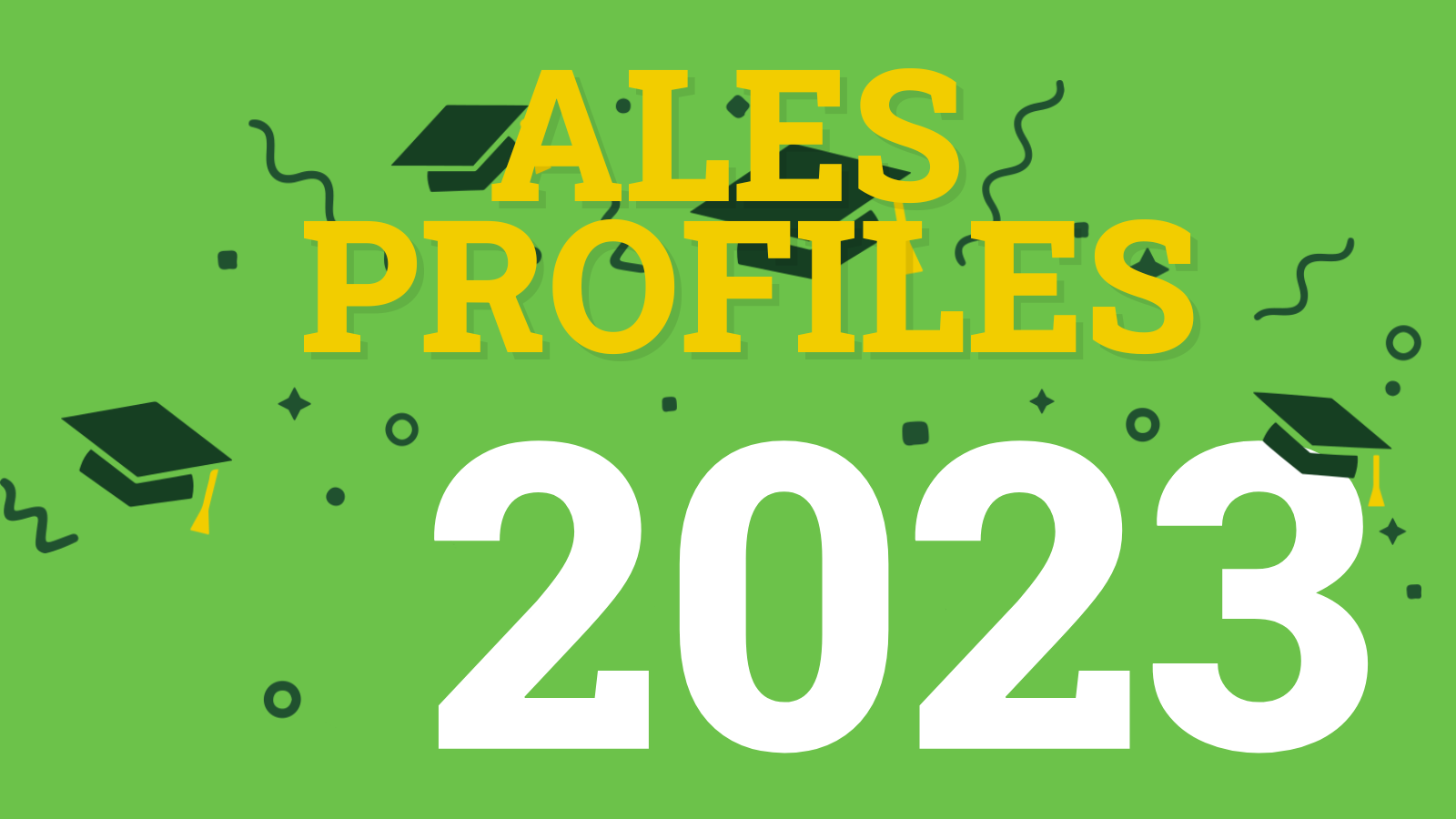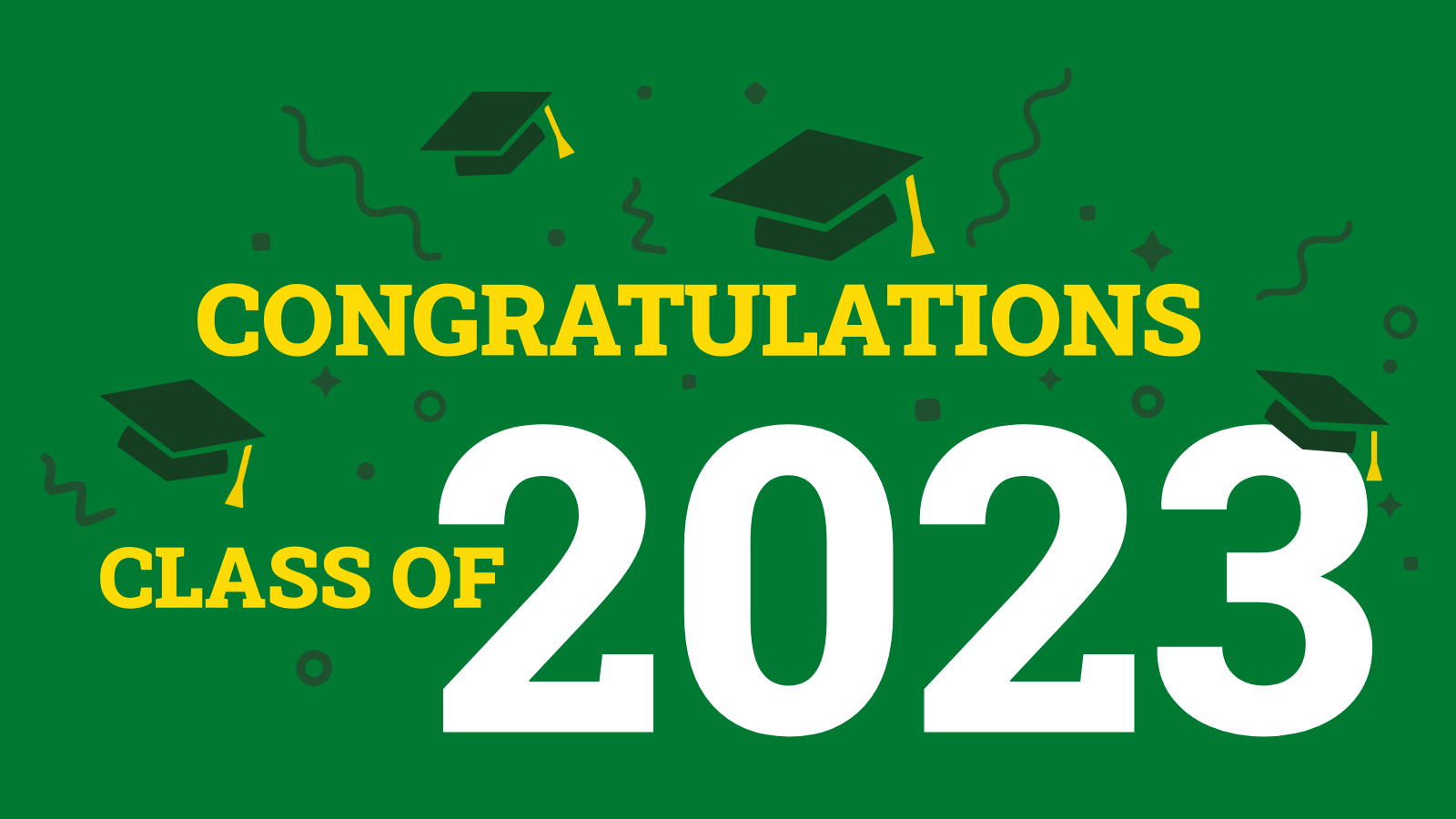Convocation ‘23: Prem Pokharel, PhD Soil Science
Donna McKinnon - 7 June 2023
Born and raised in a small farming village in Nepal, Prem Pokharel learned about tending the soil from his parents. Their careful stewardship of the land inspired Prem to follow his curiosity to Canada, and eventually, to the University of Alberta to deepen his knowledge about sustainable agriculture and soil science.
In spite of many successes along the way, it wasn’t all smooth sailing. Forced to adapt his research to the COVID-19 restrictions, Prem’s ability to pivot in the face of adversity was a learning curve that he didn’t expect but now appreciates, building confidence in his own leadership and resourcefulness in crisis situations.
An outstanding student in every way, Prem has won many prestigious awards and scholarships, including the Western Grains Research Foundation Endowment Fund Graduate Scholarship, NSERC CGS-D and the Killam Memorial Scholarship. Earlier this year, he received the Faculty of Agricultural, Life & Environmental Sciences’ 2022-2023 Graduate Student Thesis Award.
Currently working as a research scientist with Suvaris Inc, Prem's long-term goals are to find solutions to combat global climate change through mitigation of GHG emissions from agriculture and helping farmers improve their crops’ nutrient use efficiency.
Congratulations Prem!
What led you to choose your current area of study, and why the U of A for your studies?
I was born in a small village in Western Nepal and grew up there working with my parents on our small farms where I learnt the fundamentals of soil-plant interactions and realized how important these interactions are in growing crops. The way my parents used to take care of soil on those small farms with the hope of conserving soil and maintaining good soil health always inspired me to learn more on sustainable agriculture.
Since then, I have had a deep interest in soil science and agriculture. I did my undergraduate in biology with plant and soil science as majors. For my master’s degree (‘17 MSc Land Reclamation and Remediation), I worked on a land reclamation project that provided an opportunity to broaden my knowledge on soil biology, nutrient dynamics and plant growth. While working on a project in an oil sands reclaimed area, I learnt that the rhizosphere (a soil zone in a close vicinity of plants roots) is the most dynamic hot spot of microbial activity; the interaction in that zone between soil, plant and microbes is the main driver of building up of soil organic matter, nutrients’ cycling and their availability in that soil zone for plant uptake. I was curious to learn about these rhizosphere processes in a cropland and interested to explore how these processes can be manipulated for the improvement of crops’ nutrient use efficiency. That curiosity led me to choose the current areas of study.
In my PhD research, I explored how soil amendment using biochar and manure can be used to manipulate microbial growth and activities, and carbon and nutrient cycling in the rhizosphere for the purpose of enhancing crops’ nutrient use efficiency, building of soil organic matter and mitigating GHG emissions from cropland soil.
While choosing a university for my graduate study, I had a few criteria in my list for selection: i. Expertise on my research area, ii. Resources available to support my research, iii. Reputation of the university and iv. Convenience for living with my family. The University of Alberta was the first choice based on those criteria. During university selection for my PhD degree, I was already familiar with the knowledge and experience of the professors in my research field and the resources available in the Department of Renewable Resources from my MSc degree I did earlier in the same department. So, I did not have any second thoughts on selecting U of A for my PhD research.
What is one of your favourite memories from your time at the U of A?
One of my favourite memories at the U of A is the time I spent on an educational tour of about two weeks offered by the Land Reclamation International Graduate School (LRIGS) through my faculty. We, a group of 25 LRIGS participants visited different places in British Columbia to see how the land reclamation principles work in the real world. It was such a wonderful experience learning the basics of land reclamation under different circumstances. In addition to learning soil and plant science in that tour, it was also a very good time for me to learn about different cultures from friends of different backgrounds we had in the program. I was fortunate to be a participant of this program during my graduate studies at the U of A.
Tell us about your favourite professor and/or class.
My supervisor Scott Chang has always been my favourite professor in the department in terms of supporting students. He has exceptional qualities of guiding students in our research area through his knowledge and experience. However, throughout my time at the U of A, I have been most inspired by M. Anne Naeth, a professor in renewable resources. I feel the way she motivates and encourages students to help achieve their goals is just superb.
Did you take on any leadership roles while you were a student?
I took leadership roles in some volunteer work including teaching and organizing U School teaching of ‘Soils Around Us’ at the U of A. In my leadership roles, I organized the sessions for grade 4-6 students, prepared handouts for the lab sessions, arranged lab activities and coordinated with other fellow volunteers for successful completion of the teaching sessions. That provided me an opportunity to gain skills of organizing events, making plans and executing them and coordinating with people of different backgrounds. I completed a few research projects as a project lead during my graduate study at the U of A in which I was responsible for leading a group of graduate students, lab staff, visiting scholars and summer research assistants involved in these projects.
Did you face any significant obstacles or challenges during your program?
One of the significant challenges during my program was the COVID-19 pandemic. It hit not only me but all the students. The pandemic hit my research hard and forced me to leave off some of my research goals. The uncertainties in continuing our four-year research project that was started a year earlier with field sample and data collection amid the fear of pandemic was the biggest challenge. The strict policies of the Alberta government and the university on health and safety at that time caused many labs to shut down or operate in a limited access.
The first challenge was to get permission to continue research work during the pandemic. The research project would have been a failure due to lack of annual data, which was an essential part of the research project to assess inter-annual variations in the dataset. The next challenge was to get the work done in a timely manner with limited access to the laboratory and a limited number of people allowed to work in the field. We were able to get the research work done by being flexible in shift work in the laboratory and making some adjustments to the research goals for that year. Good coordination among the laboratory staff, supervisor and the department was the key for accomplishing the project during pandemic. I took that challenge as an opportunity to learn how to make and execute plans for research work in such extreme situations. Despite those challenges we were able to achieve 80% success in reaching our goals.
What advice do you have for current and future students?
My advice is to be focused on your goal. Unless you are quite efficient at multitasking, focus on certain goals at a time. Be clear on what you are doing. As a PhD student, the earlier you set your goals for the program and prioritize them, the sooner you will be able to achieve these goals and complete the program. Don’t hesitate to seek help from your supervisor at any time for any issues. Your supervisor is an expert in the field of your research and his/her advice leads you to success.
How do you plan on celebrating convocation?
I don’t have any specific plan for celebrating convocation yet. I will enjoy being with my family and close friends celebrating my success.
What's next after graduation?
I am hoping to continue working in soil science and agriculture as an agronomic research scientist with Sulvaris in Calgary, which I started last year. Nutrient management in agriculture is my main interest now. Development of novel methods/solutions to combat global climate change through mitigating GHG emissions from agriculture and helping farmers improve their crops’ nutrient use efficiency are my long-term goals. My short-term goals are to become a professional agrologist, learn how research collaboration works from industry levels in agriculture and get some hands-on experience working with farmers to build up my road maps for a faculty position at a university in near future.
someday!


